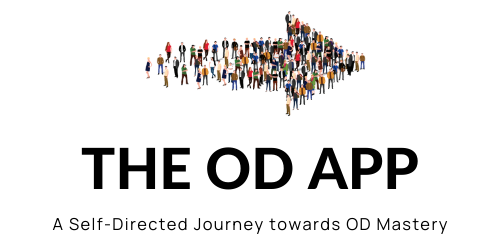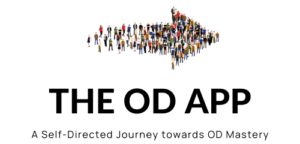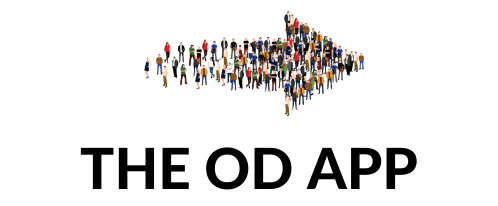Description
All human systems—communities, organizations, teams, families, etc.—are characterized by unique sets of beliefs, customs, habits, rules and normative expectations that, through daily human interactions and expressions, form distinct behavioural patterns that are recognised by others as their ‘culture’. Some of these are explicit, more are unspoken and implicit, even unconscious.
That said, there are two different perspectives about organisation culture. One school thinks culture is a component of organizations—something that an organization HAS like structures, strategies, policies and operational processes. From that perspective, changing organizational culture often is viewed in terms of modular design, amenable to being shaped, manipulated and re-engineered.
Alternatively, the other perspective is to see culture through an anthropological lens: an organisation does not HAVE a culture, but rather an organisation IS a culture. Seen this way, culture is a pervasive paradigm in which people live and function. As culture exists ‘in between’ people, it is this ‘in betweenness’ on which an OD intervention needs to focus—to change the nature and character of the rules that shape interactions between people and groups—the culture of the system.
This is the sentiment behind Burke’s thinking as he maintains that if we have not touched culture during change, we have not touched anything. This is similar to other writers’ views on change, with most of them arguing that the central challenge in organizational change is not strategy, not systems change, but rather the need to significantly shift people’s attitudes, behaviours and actions to ensure the culture is “fit” enough to support the delivery of the organisation’s strategic ambitions.
This lack of the understanding of the role of culture in change is a significant factor accounting for the low percentage of successful and sustainable organizational change efforts. Major programmatic change often focuses, for example, on things like structures, processes, customer approaches, and organizational design, but leaves culture change as last on their agenda – or not considered at all. As one CEO once said, “Go finish changing the organisation structures and procedures first, then come back to talk to me about culture.”
In supporting organisations to move towards a comprehensive state of health, the competent OD practitioner requires the ability to observe, recognise, diagnose, and discern what are the written and unwritten rules that make sense to the organisation members, regardless of whether or not they agree with them. They must be willing to engage with clients as part of the binding culture of their environment.
While doing culture work, the competent OD practitioner will withhold judgement–not asking whether a client’s culture or behavioural patterns are ‘good or bad’, but rather, in light of their strategic ambitions, do their current culture and behavioural patterns tend towards supporting or negating their goals? Since culture is always backward-looking (repeating what has been successful in the past), it means a) the OD practitioner needs to recognise that at one point in the history of the organisation, they were FIT enough to support the growth of the organisation; and b) any change and transformative initiatives will always be threatening to those who have gained success through those cultural norms that are now being contested.
In summary, being competent in working with culture involves identifying, diagnosing, navigating and shifting patterns towards better fitness for the future, without judgement. Also, the competent OD practitioner needs to be capable to design processes that help clients to become aware of
- What are the dominant patterns that shape their behaviour – individually and collectively,
- whether such patterns and rules are helpful or unhelpful in support of achieving their organisation strategic ambitions, and
- what capabilities they need in order to start shifting those patterns towards desirable ends.
Experienced by clients
Practitioners competent at enabling an organisation to discern what is ‘fit’ or ‘unfit’ with respect to its current culture patterns are experienced by clients as wise instigators, respectful and compassionate disruptors, sensitive to the reality that patterns seen as unfit now will likely have been seen as fit in the history of the organisation, appreciating that ‘fitness’ is always contextual. What was fit at one time may not be fit in the present or near future. And, what is fit for one group (e.g. a finance department) may not be experienced as fit by others (e.g. the artists and producers). Thus, the competent OD practitioner is experienced as non-judgemental as they help an organization do culture work, demonstrating care and concern for the folks whose identity is based on the past or current cultural norms.
By the actions and questions of these OD practitioners, clients become increasingly aware of how to observe the often subtle cultural patterns within their own systems. Clients are helped to increase their courage and skills around surfacing, contesting, and shifting those patterns—knowing how to dampen some, amplify others, and introduce new patterns for the benefit of the system as a whole. The work of the OD practitioner serves as an intentional model for navigating and positively shifting organizational culture, thinking about the ‘how’ of the work as much as the ‘what’ of the work without blame or an attitude of criticism.
What the competence ‘looks like’
The characteristics and qualities noted below are not intended to be exhaustive or definitive. Nor are they in any particular order. Nor are the distinctions between ‘Knowledge’, ‘Skills/Abilities’ and ‘Character/Attitude’ hard and fast—rather they are heuristic categories with obviously overlapping edges. The intention is merely to provide a frame of reference for considering important elements of the OD Culture Work competence.



